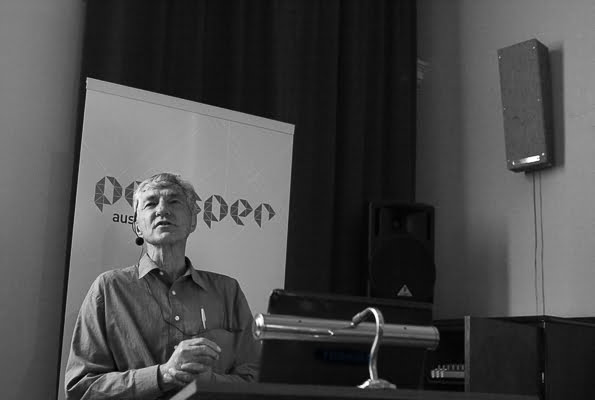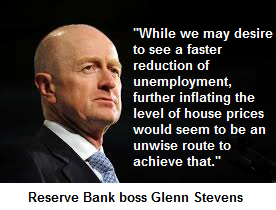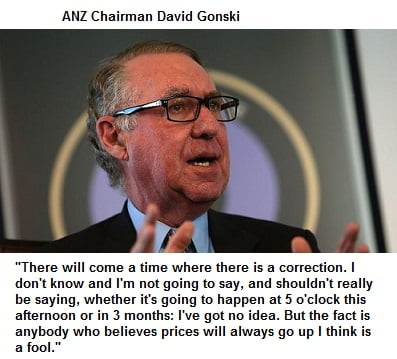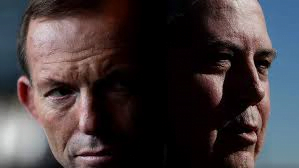Ever since the property market got up off the mat in 1996, we’ve pumped up a massive bubble in residential land prices, aided and abetted by increasing “low” interest rates. (Whether these were low in real terms is questionable.)
With the overnight cash rate now at 2.5%, higher than most places in the world, the AUD has become too high, adversely impacting against our export markets. So, we probably need to cut the cash rate to weaken the dollar.
But lower interest rates would again introduce more investors into our already-bloated housing market. So we have a dilemma here, don’t we?
Problem is, interest rate policy doesn’t distinguish between productive activity and speculative real estate investment. And gross yields of under 3% show it is speculative: people are hoping the big capital gains will continue ad infinitum. Of course, such low yields cannot: they must revert towards the long-term mean.
And the RBA’s continuing problem is that it can only work with the blunt instrument of interest rate policy. The Governor’s jawboning about the dollar being too high, and housing looking a bit peaky, is unlikely to bring about the desired results. So, as he can’t stop speculation, he has one hand tied behind his back and can only use his mouth.
And onward we lurch ….. towards the greatest property bust in history.
Wouldn’t it have been far better for Australia had state governments reformed their land taxes? Think about it. What if we had all-in land taxes, with no thresholds, exemptions or multiple rates? What if the states could tweak the rate up at times like these – to deter further “investors” from entering the housing market, in order the productive side of the economy may be assisted by lower interest rates?
But politicians are lily-livered and are into property speculation themselves. They’re not going to reform land taxes for the public good, as politicians were once prepared to do.
Sad really. So get out there again, Glenn Stevens. Tell us the property bubble might have an unhappy ending. Tell us you can’t lower the cash rate because that will encourage Joe Sixpack to become a property “investor” too.
The RBA is thoroughly compromised and its Governor has been reduced to a spruiker. (Just yell “Run for the hills!“, Glenn!)
_____________________________________________________
But, then, I guess the whole banking sector is out of control?

 MULTI-GENERATIONAL ENSLAVEMENT?
MULTI-GENERATIONAL ENSLAVEMENT? Prosper Australia media release 4 September 2014
Prosper Australia media release 4 September 2014

 Thanks, Tone & Clive.
Thanks, Tone & Clive.